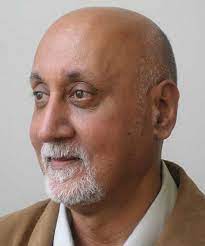Nov. 21: Achin Vanaik, a political scientist, has been asked to apologize by the OP Jindal Global University in Haryana for comments he made during a lecture on history of the Israel-Palestine conflict.
The private liberal arts university has also issued a warning to a faculty member for allegedly discriminating against students based on their ideology and religion and for allegedly violating students’ privacy and confidentiality during a dating lecture.
On Nov. 13, the Registrar of the University Dabiru Sridhar Patnaik wrote a letter to Achin Vanaik, telling Vanaik that the statements made by him during his lecture on November 1 were gratuitous and unrelated to the subject.
According to the Registrar, Vanaik had put OP Jindal Global University in a vulnerable position by failing to exercise prudence while speaking about sensitive subjects. Vanaik lecture was criticized on social media platforms while accusing him of making anti-Hindu remarks.
Former chairman of the University of Delhi’s political science department Achin Vanaik has defended his November 1 lecture on “The History and Politics of the Palestinian Present” at Sonipat’s OP Jindal University despite the university’s request that he “express regret” for his “irresponsible” remarks.
Israeli ambassador Naor Gilon wrote to the university’s founding vice-chancellor, C Raj Kumar, following the retired professor’s address, saying, “I cannot understand why an event delegitimizing the State of Israel was hosted at the University.”
Prof. (Dr.) Y.S.R. Murthy, Vice Chancellor of RV University, Bangalore in his reaction, told Radiance, “University classrooms and lecture halls are supposed to be spaces for contestation of ideas. Students need to be exposed to all strands of thought coming from left, right and centre. Students and faculty members should enjoy unfettered freedom to explore new ideas for a true pursuit of knowledge. When this liberal space for contestation of ideas shrinks, it is not difficult to visualize deleterious consequences for the nation as a whole. Autonomy is, therefore, very critical for any university’s effective functioning.”
Prof Murthy added, “Students commit an error when they secretly film a faculty member or any speaker during their lecture without their prior consent and leak selective portions thereof out of context. When intellectuals look over their shoulders and hesitate in expressing their opinion freely in classrooms out of fear and reprisal, there is an intellectual paralysis. Students should have exposure to all strands of opinion and synthesise them and create their own worldview.
“State, its institutions and other agencies must zealously safeguard the autonomy of universities. India can become a Vishwaguru if its top institutions are allowed to flourish and grow.”
Syed Ali Nadeem Rezavi, Professor of History, AMU and Secretary of Indian History Congress, said, “Well, these days those manning our educational institutions have forgotten what is meant by an institution being a university. They are either not professionally qualified or too ill-advised to understand the difference between a college and a university. Universities are not only places of higher learning but places where the mind is left free to question and challenge.”
“Without questioning no progress can be made in this world! By turning these institutions into closed ghettos, they are committing a crime against humanity and the nation. Perhaps in view of such incompetent individuals, Pandit Nehru had once remarked: Universities can be opened, but where will you get qualified people to run them? He was right,” said the Secretary of Indian History Congress.




